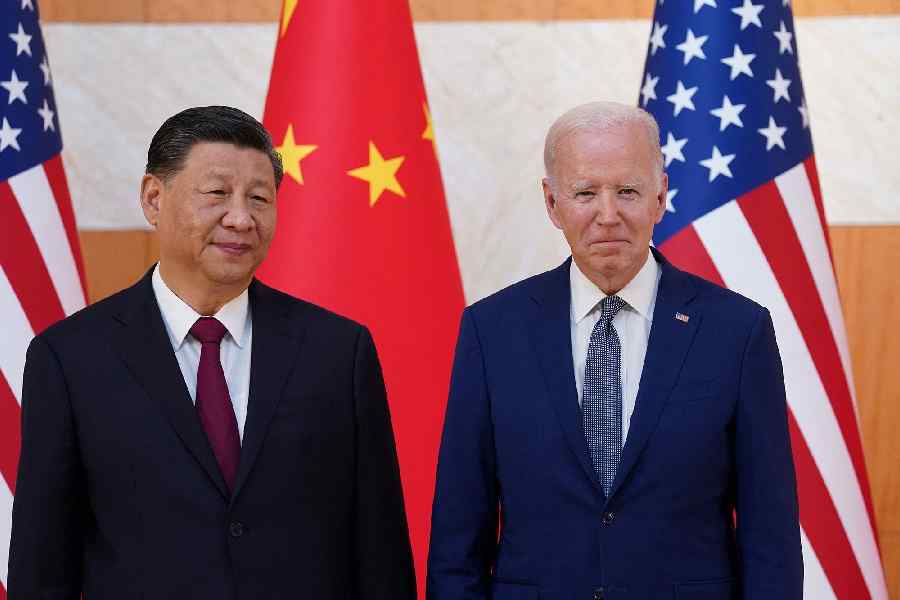A phone conversation last week between President Joe Biden of the United States of America and his Chinese counterpart, Xi Jinping, has underscored the attempts by
the world’s two most powerful nations to manage their difficult relationship at a time of heightened global turbulence spurred by multiple wars. This was their first known conversation since Mr Biden hosted Mr Xi for a summit in California last November. At that time, the two leaders had agreed to communicate more regularly to try and avoid misunderstandings while acknowledging that they had no ready solutions for the deep distrust that plagues US-China ties. Last week, differences over Taiwan, Russia’s war on Ukraine, Beijing’s tensions with its neighbours in the South China Sea and Israel’s war on Gaza emerged as key issues of discussion where the two sides sit on opposite sides of the fence. Yet, perhaps the most significant cause of stress in their relationship in the long run is their deep rivalry in technology sectors. The US sanctions and restrictions aimed at curbing China’s growth in semi conductors, Artificial Intelligence and related fields, and Beijing’s counter-measures limiting Washington’s access to critical minerals, could fundamentally affect the technology-driven advance of both nations. This is not to suggest that there are no areas of convergence: climate change is an area where the two countries broadly agree and have shown willingness to work together.
How the US and China navigate their stresses will affect the entire world, especially with the very real prospect of Donald Trump returning to power in Washington in November. Mr Trump initiated many of the anti-China measures that Mr Biden has continued. The unfolding US presidential election campaign is likely to see the two candidates compete to show who is tougher on China. At the same time, the US and China both know they cannot do without the other: they depend too much on each other for trade. In this moment of great uncertainty, other countries, including India, must chart their own paths with both the US and China, not allowing either to influence their policies towards the other. Like the US, India too must maintain high-level communication with China as the Asian neighbours manage their own tense ties.
At the same time, India must continue to bolster strategic links with friends in Southeast and East Asia that share its concerns about China. That is New Delhi’s best bet for safe sailing amid the choppy waters surrounding the US-China relationship.











